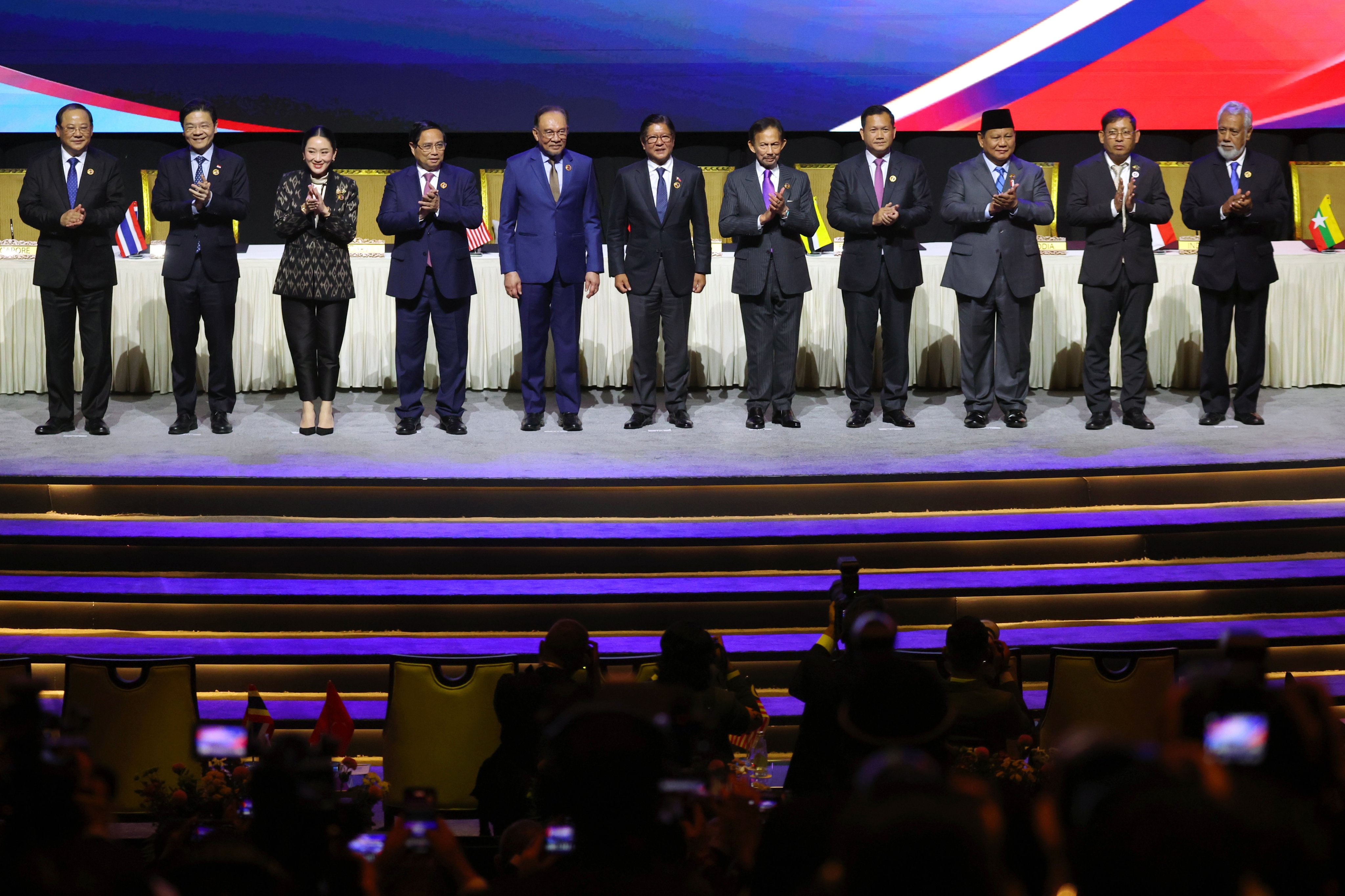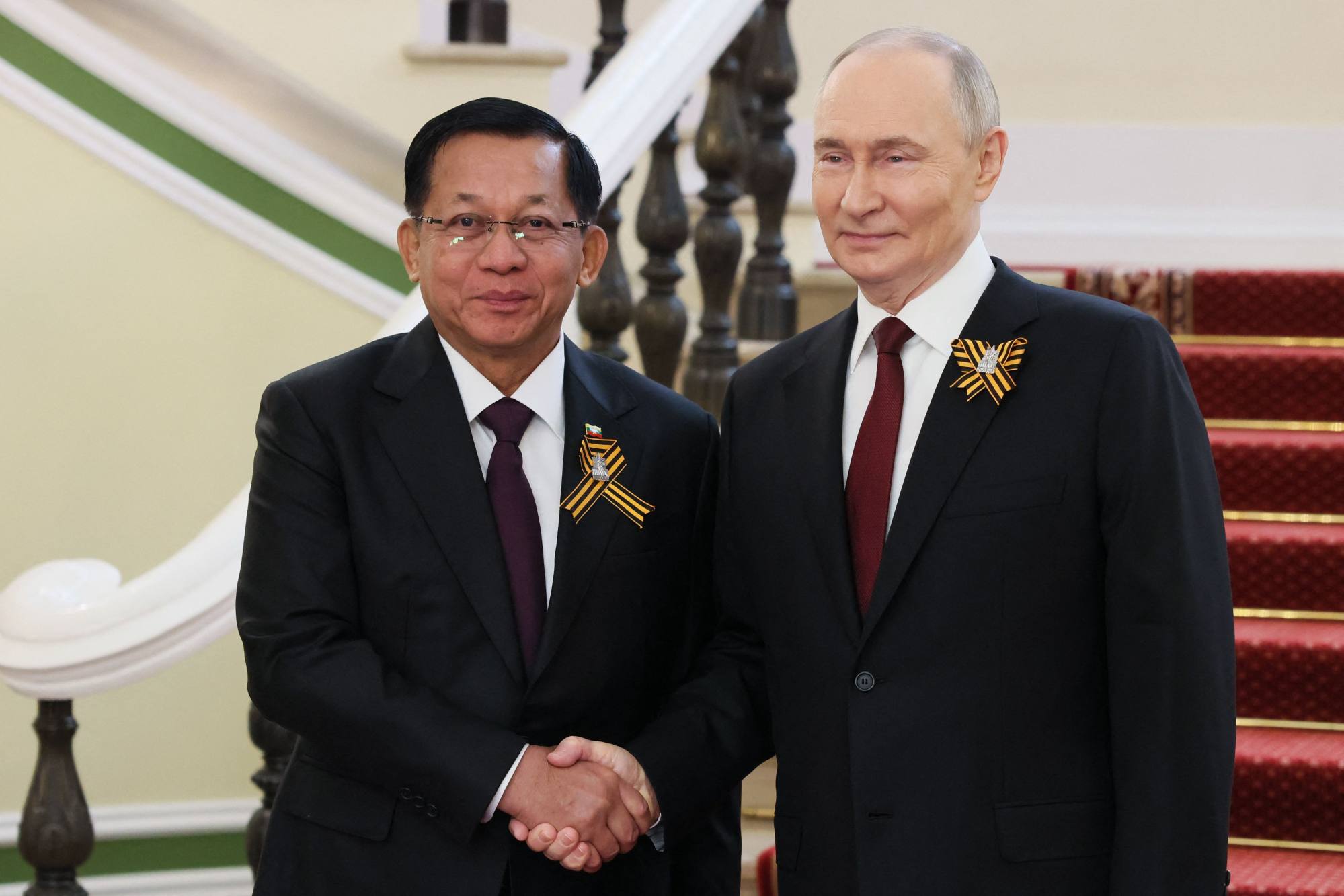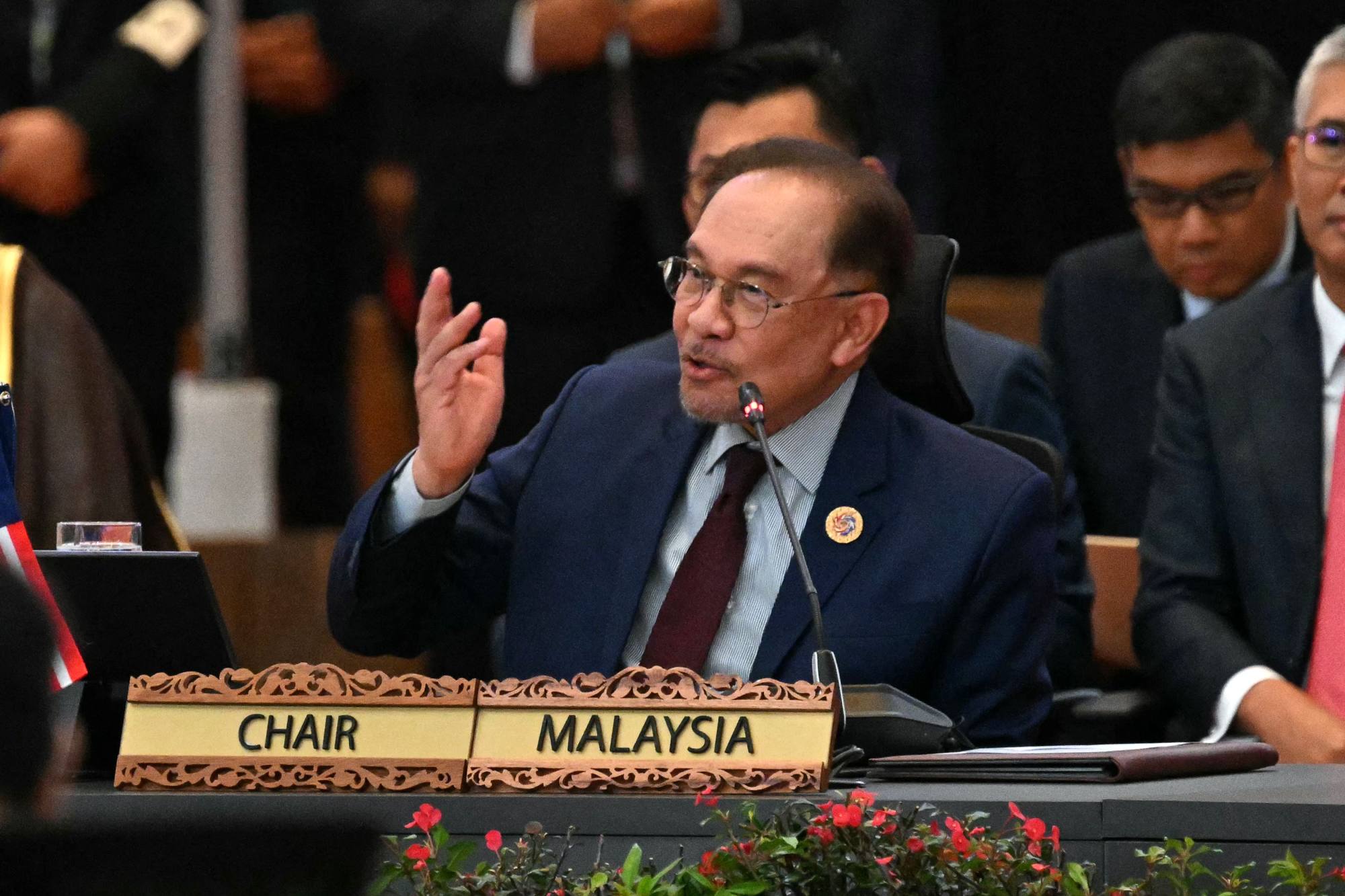‘Concerned’ Asean leaders fail to issue fresh condemnation of Myanmar’s junta
Southeast Asia’s leaders reaffirm the bloc’s backing of a so-called five-point consensus as a road map for resolving Myanmar’s crisis

Southeast Asian leaders have said they are “deeply concerned” about the violence and deteriorating humanitarian situation in Myanmar, in a statement at the end of the Asean summit in Kuala Lumpur, but significantly held back from further action against a junta which continues to kill civilians four years after it seized power.
The junta has continued deadly air strikes against civilian areas held by ethnic armed groups and pro-democracy forces, in the weeks following a devastating earthquake in Sagaing in March that killed more than 3,700, with over 5,100 people injured and about 115 missing according to the UN.
That is despite junta chief Min Aung Hlaing calling a ceasefire – to match several rebel groups – as the country struggles with the immense needs of hundreds of thousands of people displaced from their homes.
This month the junta leader – ostracised by the Association of Southeast Asian Nations and banned from its meetings – travelled to Moscow to attend Russia’s Victory Day parade on May 9, standing alongside President Vladimir Putin, and met Chinese President Xi Jinping on the sidelines of the event.
The meetings were interpreted as signs of support for a junta which has lost control of much of the country.

In a joint statement late on Tuesday, the leaders of the 10 Southeast Asian nations reaffirmed the bloc’s backing of a so-called five-point consensus as a road map for resolving Myanmar’s crisis.
“It should be implemented in its entirety to help the people of Myanmar achieve an inclusive and durable peaceful resolution that is Myanmar-owned and Myanmar-led, thus contributing to peace, security and stability in the region,” they said in a statement.
The five-point agreement, struck weeks after the 2021 coup, calls for an immediate end to violence and for a special envoy to engage all parties, including the junta and the ousted civilian leadership.
But progress has stalled for years and Myanmar’s generals have refused to honour the deal, prompting Asean to bar senior Myanmar officials from the bloc’s high-level meetings.
Thailand, which has repeatedly broken ranks with the bloc’s diplomatic protocols to engage the junta directly, also appears to have made little headway in securing a binding ceasefire.
As Asean chair for 2025, Malaysian Prime Minister Anwar Ibrahim took his own steps to reopen dialogue by using the Sagaing earthquake and humanitarian relief as a pretext to engage Min Aung Hlaing, making him the first Asean chair to meet the junta leader since the coup.
The move, facilitated and hosted by Anwar’s personal adviser on Asean affairs, former Thai prime minister Thaksin Shinawatra, has drawn criticism for potentially legitimising a regime still intent on staging elections by year-end, despite controlling only parts of central Myanmar.

Addressing the initiative during his opening remarks on Monday, Anwar defended the engagement as a necessary risk.
“The steps may be small and the bridge may be fragile, but as they say, in matters of peace, even a fragile bridge is better than a widening gulf,” Anwar said.
Anwar also revealed that the informal advisory group had grown beyond Thaksin to include Brunei’s Sultan Hassanal Bolkiah and would next be hosted by former Cambodian prime minister Hun Sen.
“It is significant that since the third meeting held in Bangkok, we have been able to move the needle forward in our efforts for the eventual resolution of the Myanmar crisis,” he said.
Asean Parliamentarians for Human Rights, a group representing the region’s lawmakers, has expressed its disapproval of Anwar’s engagement with Min Aung Hlaing, saying the people of Myanmar have made their rejection of the junta’s rule “abundantly clear”.
“Asean must stand with the people – not the perpetrators of tyranny,” said Arlene Brosas, a lawmaker from the Philippines.
“Legitimising the junta betrays Asean’s core principles and the aspirations of millions who continue to resist military rule.”